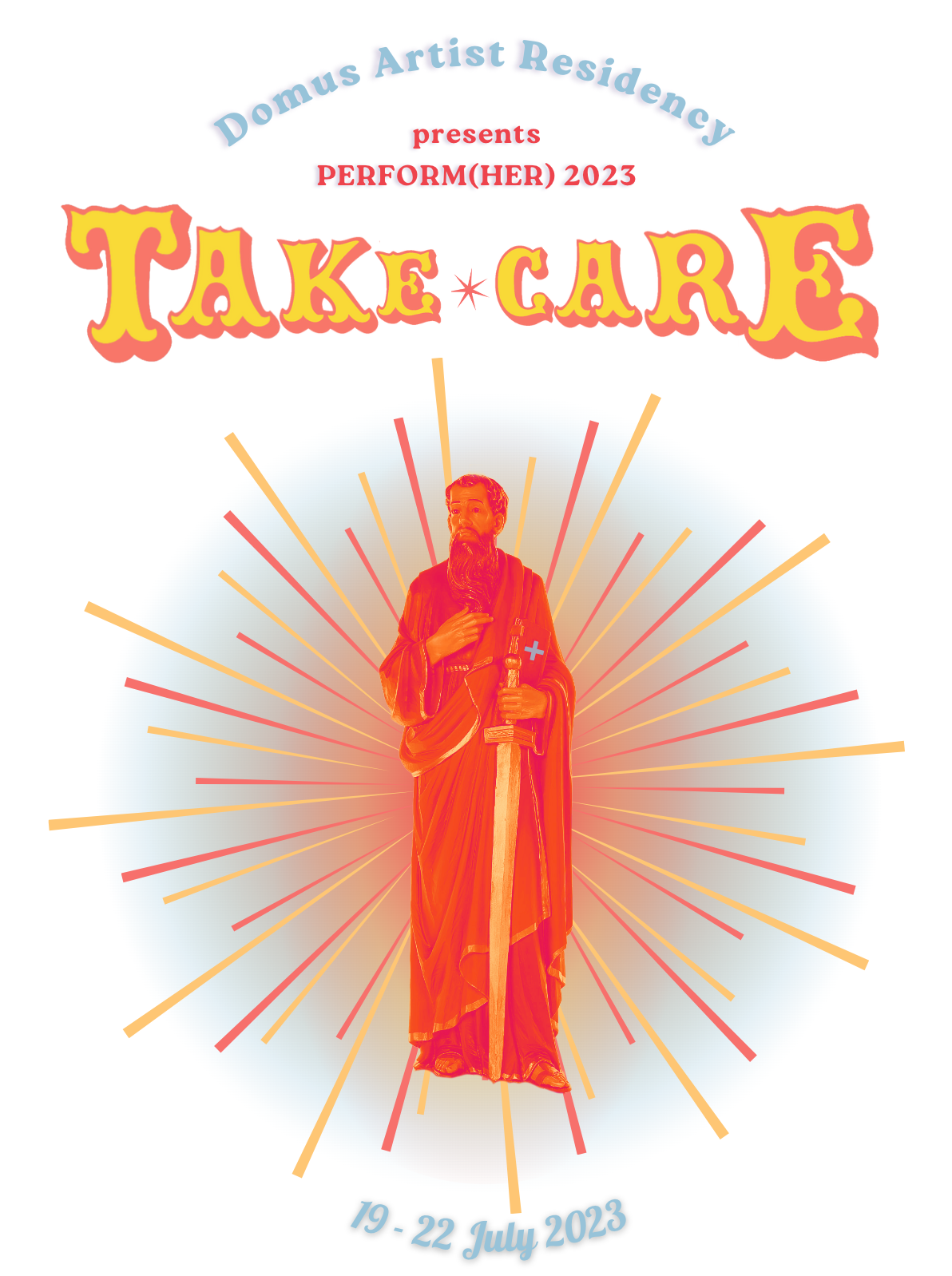In Galatina, Tarantate women and some Tarantati men came to ask Saint Paul for forgiveness. The tarantata were women bitten by an imaginary tarantula which caused a seizure in the victim. From that moment, from the moment of the bite, a two-step healing process was activated. First home care, in which a small group of musicians went to the houses of bitten women and tried through the music of the pizzica to free the body poisoned by the spider. In a second time, during the feast of Saints Peter and Paul, the tarantate relived the same remorse caused by the bite of the spider. This time, it was Saint Paul who freed them from all suffering. The pizzicate then went to the square of Galatina to ask for grace from Saint Paul and recover from their discomfort.
For several years, thanks to our guests at the Domus residence, we have been rewriting the myth, the ritual and the memory of these women and men pinched by the tarantula. We have rethought the phenomenon of tarantismo as a phenomenon of art brut, we have rewritten the memory of these women in the streets of Galatina, renaming the streets and squares with the protagonists of De Martino’s anthropological study. We have brought together this history of the territory with great artists and theoreticians of performance in contemporary art. Finally, we have brought together the disappearance of such a phenomenon from our historical memory with the drama of the drought of the olive trees. Because, as De Martino says, closing the study “La terra del rimorso”:
“Too many things in our South die of themselves, without conscience and reason deriving any operational merit from them, and too many, on the contrary, survive without conscience and reason perceiving their acute contradictions in terms of transformation. Someone might observe that tarantism is too small and local to stimulate consciousness and mobilize transformative reason: but it appears small and local precisely because our indifference renders it irrelevant, irrelevant to larger issues. Pagan tarantism, its graft into the cult of Saint Paul, the disintegration of musical exorcism, the morbid character of the manifestations in the chapel and the limit of traditional medical interpretation are translated today, locally, by a system of inertia, intolerance, recklessness, contradictions, incompatibilities suffered: but in this chaos to which we give the romantic name of folklore, and which at least in this case is in reality the story which arises and humiliated by nature , it is up to conscience and to transforming reason to re-establish the active order of a civil recomposition armed with historical knowledge”.
The Domus residence was born in 2019 with the intention of wanting to reactivate this historical memory, to make it dialogue with the present and with other minority issues and in dialogue with other countries in the Mediterranean basin (ecology, gender issues, flow migratory).
This year we want to do it from the myth and the healing rite that took place in Galatina in the main square, from the miracle of San Paolo and from the bodies in search of a cure. During three days of public conferences, visits to the territory and an evening of video installations, we will bring together artists, curators, directors of contemporary art spaces, researchers and therapists on the question of care. As we at Domus try to Perform(her) 2023 – Take Care of our Salentine territory and try to reactivate a memory of Tarentism, refocusing it in terms of care and gender issues through contemporary art and a transdisciplinary approach, our guests will be invited to talk to us about care as an artistic practice, as a research methodology, as an ecofeminist practice or as a creative process.
Perform(her) 2023 – Take Care, a research residency from July 19-22, 2023, is an opportunity to rethink the notion of “care” and collective care, to bring together methodologies, practices and studies in a transversal and transdisciplinary way, to bring together international guests with operators in the Salento region and, all together, rethink the issues of care of the territory, care of the community, as ecofeminist practices and life in common spaces or in the community.
Without ever losing sight of the importance of sharing pain through the body in public space, through the summer program Perform(her) 2023 – Take Care, we want to create a dialogue between performative practices and theories of bodily performativity in a process of personal care and internal environment. Perform(her) 2023 – Take Care will be an opportunity to relive the city of Galatina as a space of collective care and feminist memory of tarantata, performer and different women. Through our program, we try to start from the concept of miraculous healing offered by Saint Paul, to remember the power of tarantism as an unmasking of a history of domestic violence and frustration and to rethink the healing process as a collective performative action.
The cure becomes a popular and shared process, a theoretical starting point to transform the tarantula into a feminist icon and Saint Paul into a pop icon, no longer born inertia, born intolerance, born contradictions, my solo with the intention to freely reclaim our identity, to care for and care for territories and communities, to take possession of our historical memory and to relocate to the South and to the heart of the Mediterranean without dying anymore, me to heal. The cure as a popular and shared process, a theoretical starting point for transforming tarantate into feminist icons and Saint Paul into a pop icon, without any more inertia, intolerance or contradictions, but only with the intention of freely regaining possession of our identities, healing and heal the territories and communities, take possession of our historical memory and relocate us to the South and in the heart of the Mediterranean without dying anymore, but to heal.
by Romina De Novellis
